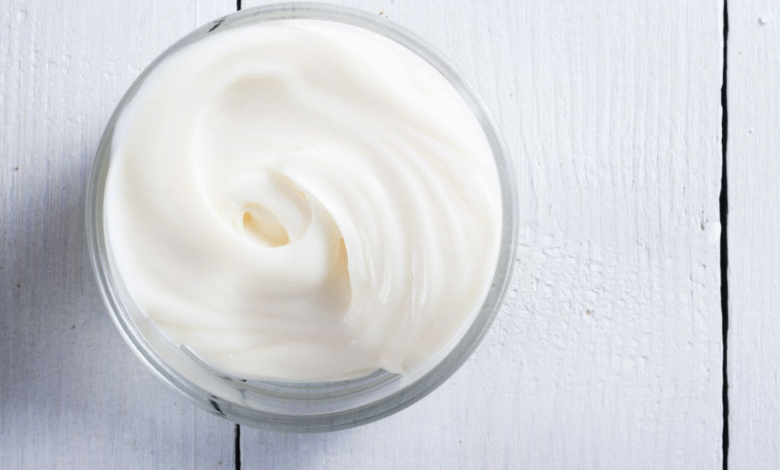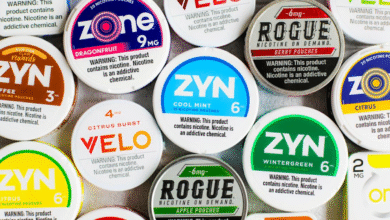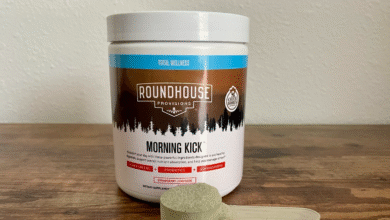Face Moisturizer Recalled: What You Need to Know

Stay informed about Face Moisturizer Recalled, potential risks, and safe alternatives. Learn how to protect your skin and avoid harmful products.
Understanding Face Moisturizer Recalled
A face moisturizer recall is an announcement by a manufacturer or health authority that a specific skincare product may pose health risks to consumers. Recalls often happen when contaminants, allergens, or harmful ingredients are found in the product. These issues can cause irritation, infection, or other skin-related problems.
Recalls aren’t just about faulty batches—they are a proactive measure to protect consumers. When a moisturizer is recalled, it is a signal for individuals to stop using the product immediately and follow guidance from the manufacturer or regulatory authorities. Understanding the reasons behind a recall helps consumers make informed skincare decisions.
Common Reasons for Face Moisturizer Recalls
Face moisturizers can be recalled for several reasons, and the causes may range from minor manufacturing errors to serious contamination. One common issue is the presence of bacteria such as Pseudomonas aeruginosa, which can trigger infections, especially in sensitive skin.
Another frequent cause is the mislabeling of ingredients. Some moisturizers may contain allergens not listed on the label, putting consumers at risk of reactions. Additionally, chemical imbalances in the formula, such as improper pH levels, can render the product unsafe or ineffective. Recognizing these risks helps in understanding why a recall occurs and why it’s essential to heed them.
How Face Moisturizer Recalls Affect Consumers
When a face moisturizer is recalled, the impact on consumers can be significant. Users may experience skin irritation, rashes, or other allergic reactions depending on the contaminant or ingredient issue. Even if no immediate harm occurs, recalls can damage consumer trust in a brand.
Moreover, recalls often lead to a sudden need to replace skincare routines. People relying on a specific moisturizer may struggle to find a suitable alternative quickly. Awareness of recalls ensures that consumers can take swift action, minimizing health risks while maintaining their skincare regimen.
Identifying Recalled Face Moisturizers
The first step in protecting yourself from a recalled moisturizer is learning how to identify it. Manufacturers typically provide the product name, batch number, and purchase dates associated with the recall. Regulatory websites or consumer protection agencies also publish official recall notices.
It’s important to check your current skincare products against these listings regularly. Even if a product seems harmless, a recall could indicate hidden issues that may not be immediately visible, such as microbial contamination or unsafe preservatives.
Steps to Take if Your Moisturizer is Recalled
If you discover that your face moisturizer has been recalled, immediate action is necessary. Stop using the product immediately to prevent potential skin reactions. Document the product details such as batch number, purchase date, and place of purchase.
Next, contact the retailer or manufacturer for guidance on returns, refunds, or replacements. Many brands offer full refunds or replacement products for recalled items. Lastly, monitor your skin for any unusual reactions, and consult a dermatologist if irritation persists after discontinuing the product.
Health Risks Associated with Recalled Moisturizers
Recalled face moisturizers can pose various health risks depending on the contamination or formula issues. Bacterial contamination may lead to infections, while unlisted allergens can cause redness, swelling, or even more severe allergic reactions.
In extreme cases, chemical imbalances in a moisturizer can harm the skin’s protective barrier, leading to dryness, breakouts, or accelerated aging. Understanding the potential dangers reinforces the importance of taking recall alerts seriously and protecting your skin from unsafe products.
Safe Practices to Avoid Recalled Products
Preventing exposure to recalled face moisturizers requires vigilance. Always purchase products from reputable retailers, check ingredient labels, and research brands before buying. Avoid products with unusually low prices or packaging that appears tampered with.
It is also wise to follow regulatory websites and brand announcements. Face Moisturizer Recalled Signing up for email alerts from consumer safety organizations ensures you receive immediate updates on any product recall. Being proactive is the best defense against accidental use of unsafe skincare products.
The Role of Regulatory Authorities
Regulatory authorities play a crucial role in ensuring skincare product safety. Agencies such as the FDA in the United States and equivalent organizations worldwide monitor cosmetic products for compliance with health and safety standards.
These authorities evaluate reported adverse reactions, inspect manufacturing facilities, and issue recall orders when necessary. Their role ensures that consumers have access to safe products and that manufacturers maintain high safety standards in skincare production.
How Brands Handle Recalls
When a brand issues a face moisturizer recall, it’s not just about removing the product from shelves. Brands often conduct internal investigations to identify the source of contamination or formulation error. They may also improve manufacturing processes to prevent future issues.
Transparent communication is key. Reliable brands inform consumers about the recall through multiple channels—social media, email notifications, press releases, and in-store alerts. This approach helps restore trust while prioritizing consumer safety.
Choosing Safe Alternatives
After a recall, choosing a safe alternative moisturizer is critical. Look for products with transparent ingredient lists, dermatologist recommendations, and positive consumer reviews. Opting for hypoallergenic or fragrance-free formulas can also minimize the risk of adverse reactions.
Another useful tip is to patch-test new moisturizers on a small skin area before full application. This step helps identify potential reactions early, ensuring your skincare routine remains safe and effective.
How to Report Adverse Reactions
If you experience irritation, redness, or other reactions from a recalled moisturizer, it’s important to report it. Contact the manufacturer immediately and provide detailed information about the reaction. Regulatory authorities also have platforms for reporting adverse cosmetic events.
This feedback is essential for preventing further harm and can trigger additional investigations or recalls if the issue is widespread. By reporting adverse reactions, you contribute to the overall safety of skincare products for everyone.
Tips for Skincare Safety

Maintaining skincare safety goes beyond avoiding recalled products. Always check expiration dates, avoid sharing skincare items, and store moisturizers in cool, dry places. Ingredients such as parabens or sulfates may irritate sensitive skin, so understanding your own skin type is crucial.
In addition, stay informed about emerging product recalls and trends in skincare safety. Following dermatologists, consumer watchdogs, and brand announcements ensures you’re always aware of potential risks before they affect your skin.
Common Misconceptions About Moisturizer Recalls
Some people believe that a product recall always indicates severe harm, but that’s not always the case. Recalls can occur due to minor labeling errors or conservative safety measures. However, treating every recall seriously is essential for your safety.
Another misconception is that all products from a brand are unsafe if one item is recalled. In reality, most brands maintain rigorous quality control, and recalls often affect specific batches rather than entire product lines. Understanding this helps consumers make informed choices without unnecessary fear.
Quotes from Skincare Experts
“Recalls are not a sign of failure; they are a commitment to consumer safety. Always pay attention to them.” – Dr. Elena Morris, Dermatologist
“Your skin health is priceless. A recalled moisturizer should be treated as a warning, not a minor inconvenience.” – Dr. Rajiv Patel, Cosmetic Chemist
Table: Quick Guide to Responding to Face Moisturizer Recalls
| Step | Action | Notes |
|---|---|---|
| Identify | Check product details and recall notice | Batch number, expiration date |
| Stop Use | Discontinue immediately | Avoid further reactions |
| Contact | Reach out to retailer or manufacturer | Request refund or replacement |
| Monitor | Watch skin reactions | Seek dermatologist if needed |
| Report | Notify authorities if reaction occurs | Contributes to public safety |
FAQs About Face Moisturizer Recalls
Q: Can recalled moisturizers still be used safely?
A: No, using a recalled moisturizer is not recommended as it may pose health risks, from irritation to infections. Always follow the recall instructions.
Q: How can I check if my moisturizer is recalled?
A: Visit the manufacturer’s website, check official regulatory sites, or sign up for consumer alert notifications. Compare your product’s batch number with the recall notice.
Q: Are recalls common in skincare products?
A: While not everyday occurrences, recalls happen occasionally due to contamination, mislabeling, or formulation issues. Being vigilant helps minimize risk.
Q: What should I do if I experience a reaction from a recalled product?
A: Stop using the product immediately, document your reaction, consult a dermatologist, and report the issue to the manufacturer or relevant authority.
Q: How do brands prevent future recalls?
A: Brands improve quality control, update manufacturing processes, and conduct rigorous product testing to ensure safety and compliance.
Conclusion
Face moisturizer recalls are crucial safety measures designed to protect your skin. By understanding why recalls happen, identifying affected products, and taking the right steps, you can maintain a safe and effective skincare routine. Staying informed and cautious ensures that your skin remains healthy while avoiding unnecessary risks.





